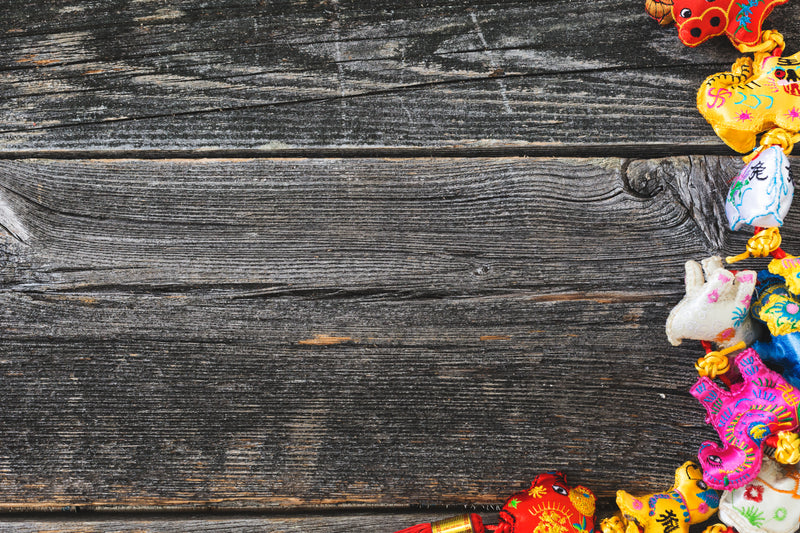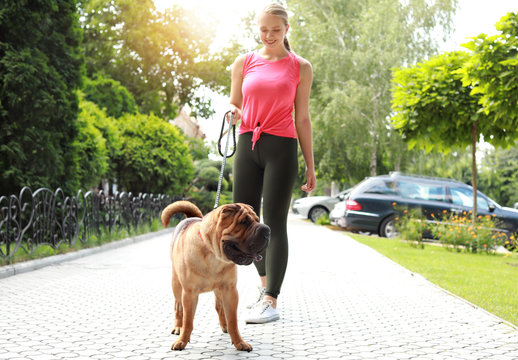If you have a dog, congratulations on your new furry family member! Owning a dog can be one of the most rewarding experiences in life, but it also comes with great responsibility. In this comprehensive guide, we will help you navigate the ins and outs of being a responsible dog owner. Discover everything you need to know about pet care, dog ownership, canine health, grooming, training, nutrition, behavior, breeds, exercise, and toys. Whether you’re a first-time dog owner or a seasoned pro, this guide will provide you with valuable insights to keep your dog healthy, happy, and thriving.
How to Care for Your Dog
Taking care of your dog is an important responsibility. It is essential to keep them healthy, happy, and safe. Here are some tips on how to care for your dog:
Feeding Your Dog
Feeding your dog is a crucial aspect of their care. A healthy diet can help prevent health problems, promote a shiny coat, and maintain a healthy weight. Here are some tips for feeding your dog:
Importance of a Balanced Diet for Your Dog
A balanced diet for your dog should include protein, carbohydrates, fats, vitamins, and minerals. You can either choose to feed your dog commercial dog food or prepare their meals at home. However, be sure to consult with your vet before making any changes to your dog’s diet.
How to Choose Healthy Dog Food
When selecting dog food, look for brands that use high-quality ingredients and meet the nutritional requirements for your dog’s age and breed. Avoid dog food that contains artificial preservatives, colors, or flavors.
Common Feeding Mistakes to Avoid
Avoid feeding your dog table scraps, as they can cause digestive problems and lead to obesity. Overfeeding your dog can also lead to a host of health problems. Be sure to feed your dog the recommended portion size for their breed and age.
Training Your Dog
Training your dog is an important aspect of pet ownership. It helps establish trust and a bond between you and your dog, as well as promotes good behavior and obedience. Here are some tips for training your dog:
Basic Obedience Commands Every Dog Should Know
Teach your dog basic obedience commands such as sit, stay, come, and heel. These are essential commands that will help keep your dog safe and well-behaved.
Tricks for Leash Training
Leash training is important for keeping your dog under control during walks. Start by introducing your dog to the leash in a calm and positive way. Gradually increase the length of your walks and reward your dog for good behavior.
Tips for Crate Training and Housebreaking
Crate training is a great way to keep your dog safe and comfortable when you are not home. Start by introducing your dog to the crate in a positive way and gradually increase the amount of time they spend in it. Housebreaking your dog can be challenging, but it is an important part of training. Be patient, consistent, and reward your dog for good behavior.
Grooming Your Dog
Grooming your dog is important for their health and well-being. Regular grooming helps keep your dog’s coat shiny, clean, and healthy. Here are some tips for grooming your dog:
Importance of Regular Grooming
Regular grooming can help prevent skin problems, matting, and tangling. It also helps you identify any lumps, bumps, or other health issues.
Tips for Bathing and Brushing
Bathe your dog regularly with a mild shampoo and warm water. Brush your dog’s coat regularly to remove any tangles or mats. Use a comb to remove any fleas or ticks.
Tools You Need for Grooming
To groom your dog, you will need a comb, brush, nail clippers, and a toothbrush. Make sure to use high-quality grooming tools that are appropriate for your dog’s size and breed.
Keeping Your Dog Healthy
Keeping your dog healthy is essential for their overall well-being. Here are some tips for keeping your dog healthy:
Common Health Problems in Dogs
Some common health problems in dogs include ear infections, skin allergies, and dental problems. Regular veterinary check-ups can help detect and prevent these health problems.
Tips for Preventing and Treating Illnesses
Prevent health problems by feeding your dog a healthy diet, providing regular exercise, and keeping them up-to-date on their vaccinations. If your dog does become ill, seek veterinary care right away.
Importance of Regular Checkups with the Vet
Regular check-ups with your vet are essential for keeping your dog healthy. Your vet can detect any health problems early and provide preventative care.
Insider Tips for New Dog Owners
As a new dog owner, it can be overwhelming to navigate the many responsibilities that come with pet ownership. Here are some insider tips to help you get started:
- Start with basic training: Basic obedience training is essential for establishing a strong bond with your dog and promoting good behavior. Start with simple commands like “sit” and “stay” and gradually work your way up to more advanced training.
- Establish a routine: Dogs thrive on routine, so try to establish a consistent schedule for feeding, exercise, and training. This can help your dog feel more secure and reduce stress.
- Be patient and consistent: Training and caring for a dog takes time and patience. Be consistent with your training and rewards, and don’t get discouraged if it takes a while for your dog to learn new behaviors.
- Socialize your dog: Socialization is important for helping your dog feel comfortable around other animals and people. Take your dog to the park or on walks to meet other dogs and people, and consider enrolling in a training class or playgroup.
- Stay up-to-date on vaccinations and health check-ups: Regular veterinary check-ups and vaccinations are essential for keeping your dog healthy and preventing illness. Make sure to schedule regular appointments with your vet and keep track of any necessary vaccinations or medications.
Emerging Trends in Pet Care
The pet care industry is constantly evolving, with new trends and innovations emerging all the time. Here are some of the latest trends in pet care to watch out for:
- Personalized nutrition: Just like humans, dogs have unique nutritional needs. Some pet food companies are now offering personalized nutrition plans based on a dog’s breed, age, and activity level.
- Wearable technology: From fitness trackers to GPS collars, wearable technology for pets is becoming increasingly popular. These devices can help you keep track of your dog’s activity level, location, and overall health.
- Natural and organic products: Many pet owners are now looking for natural and organic products for their dogs, including food, treats, and grooming products. These products are often free from artificial preservatives, colors, and flavors.
- CBD products: CBD (cannabidiol) is a compound derived from hemp that is believed to have a variety of health benefits for both humans and pets. Some pet owners are now using CBD products to help their dogs with anxiety, pain, and other health issues.
- Telemedicine: With the rise of telemedicine, it’s now possible to consult with a veterinarian remotely. This can be especially helpful for pet owners who live in rural areas or have difficulty accessing veterinary care.
Impact of Owning a Dog on Mental Health
Owning a dog can have a significant impact on mental health, providing a source of comfort, companionship, and stress relief. Here are some of the ways that owning a dog can benefit mental health:
- Reduced stress and anxiety: Studies have shown that spending time with a dog can reduce levels of stress and anxiety, and increase feelings of relaxation and calm.
- Increased social support: Owning a dog can provide a sense of social support and companionship, which can be especially beneficial for people who live alone or have limited social connections.
- Improved mood: Spending time with a dog can trigger the release of “feel-good” hormones like serotonin and oxytocin, which can improve mood and reduce feelings of depression.
- Increased physical activity: Owning a dog can encourage physical activity, which is important for maintaining good physical and mental health.
- Sense of purpose: Caring for a dog can provide a sense of purpose and meaning, which can be especially important for people who are struggling with mental health issues.
Living with Your Dog
Living with a dog can be a lot of fun, but also requires responsibility. In this section, we will cover some important aspects of living with your dog, including exercise, playtime, and dog-proofing your home.
Exercise and Playtime
Exercise and playtime are important for keeping your dog healthy and happy. Regular exercise can help prevent obesity, improve cardiovascular health, and reduce stress. Here are some tips for keeping your dog active:
Take Your Dog for Regular Walks
Dogs need to go outside regularly to use the bathroom, explore the environment, and get some exercise. Make sure to take your dog for at least one walk per day, and adjust the duration and intensity of the walk based on your dog’s age, size, and breed.
Play Fetch or Go for a Swim
Playing fetch can be a great way to keep your dog active while also bonding with them. Other fun activities include going for a swim or playing tug-of-war. Make sure to provide plenty of toys and games that encourage physical activity.
Try Agility Training or a Dog Sports Class
If your dog enjoys exercise and you have the time and resources, consider enrolling them in an agility training or dog sports class. These activities can challenge your dog both mentally and physically, and provide a great opportunity for socialization.
Dog-Proofing Your Home
Dog-proofing your home is important for keeping your dog safe and preventing accidents. Here are some tips for dog-proofing your home:
Keep Toxic Substances out of Reach
Many household cleaners, medications, and other common substances can be toxic to dogs. Make sure to keep these items out of reach and locked away in a secure cabinet or closet.
Avoid Common Household Hazards
Common household hazards for dogs include chocolate, grapes, certain plants, and small objects that can be swallowed. Make sure to keep these items out of reach and educate yourself on other potential hazards.
Protect Your Furniture and Belongings
Dogs may chew on furniture, shoes, and other objects, especially when they are puppies or feeling stressed or anxious. Provide your dog with plenty of toys and chew toys to redirect their behavior, and consider using a crate or playpen to keep your dog contained when you are not home.
Conclusion
Congratulations on taking the first step towards being a responsible dog owner! By following the tips and guidelines we’ve outlined in this comprehensive guide, you’ll be better equipped to provide your furry friend with the love and care they deserve.
Remember, caring for a dog is a big responsibility, and it’s important to give them the attention and care they need to thrive. From feeding and grooming to exercise and training, every aspect of pet care is crucial for your dog’s happiness and well-being.
Now that you have a better understanding of how to properly care for your dog, it’s time to put your knowledge into action! Visit our shop for all of your pet care needs, from healthy dog food to fun toys and accessories. We’re here to help you provide the best possible care for your furry friend, so you can enjoy many happy years together.
Questions & Answers
Who should I contact if my dog is sick?
Contact your veterinarian if your dog is sick. They can diagnose and treat any health problems.
What should I do if my dog refuses to eat?
Try changing their food or adding some variety to their diet. Consult your vet if the problem persists.
How often should I take my dog to the vet?
Take your dog to the vet for regular check-ups and vaccinations at least once a year.
What should I do if my dog is aggressive towards other dogs?
Consult a professional dog trainer to help modify your dog’s behavior. Avoid punishment and seek positive reinforcement.
How can I prevent my dog from chewing on furniture?
Provide your dog with plenty of toys and chew toys, and consider using a crate or playpen to keep your dog contained when you are not home.
What should I do if my dog has separation anxiety?
Gradually get your dog used to being alone by leaving them alone for short periods of time. Seek professional help if the problem persists.






